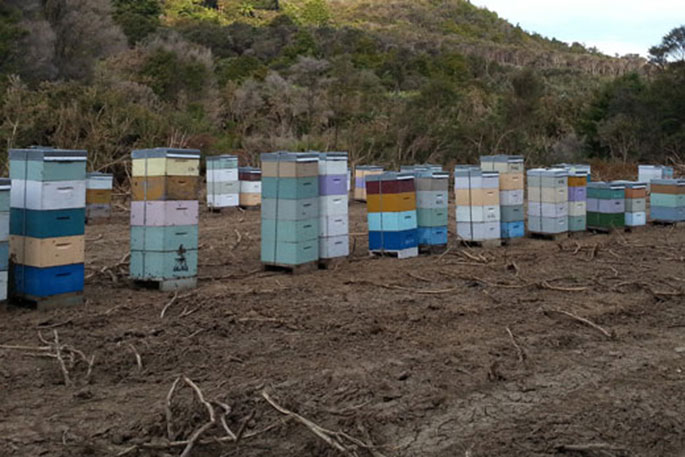New research backed by the Ministry for Primary Industries could help bumblebee hives to live longer and be more efficient.
The new project is researching ways to protect the long-term sustainability of New Zealand horticulture, including how to enhance the performance of bumblebee hives using pheromones.
MPI is contributing $160,000 towards the $400,000 project through its Sustainable Food & Fibre Futures fund.
Dr Gunjan Gera of Gourmet Waiuku Limited is leading the project, supported by consultant Dr Jo Stephens.
Dr Gera says bumblebees are often used for pollination in berryfruit crops, glasshouses, and other covered crop areas as the bees tend to travel only about 200 metres from their hives and don't mind enclosed spaces, whereas honeybees prefer to fly to flowers further afield.
'In the field, the queen bumblebee of a commercial hive lives for approximately 8-10 weeks and the hive winds down once the queen dies.
'With fewer worker bees, the hives can appear less active when compared to honeybees and there can be variation in vigour and productiveness.
'Our project will study various factors and compounds in conjugation with the bumblebee queens to see if we can extend the life of a hive to at least 12-18 weeks. If this works, we have a way of complementing nature, using a pheromone substitute.”
'The technology is in its infancy overseas and commercial companies using it haven't yet released much information,” says Dr Jo Stephens.
'We're hoping to lead the way in NZ, but it will involve a good deal of trial and error given the limited progress globally in this area.”
Dr Stephens explains that bumblebees were introduced to New Zealand from the United Kingdom by the early pioneers, so there is limited genetic diversity. Although commercial breeders incorporate new genetic diversity from the wild occasionally, the gene pool is limited.
'Another important part of the research will be screening bumblebees for diseases, including those associated with inbreeding.
'We'll be looking at the levels of inbreeding in New Zealand populations to see if this is a major concern, and whether we need to consider the possibility of importing bumblebee genetics.
MPI Investment Programmes director Steve Penno says this project could help increase the productivity of bumblebee hives dramatically.
'Enhancing bumblebee activity would mean better pollination for growers, which means higher yields and better quality produce,” he says.
As well as the bumblebee research, the project will also look at developing technology to rear Limonicuspredatory mites.
This mite is effective in controlling thrips, whiteflies, and other mites in greenhouses and protected culture systems.
While it occurs naturally in New Zealand, it is currently only reared overseas and is re-imported for New Zealand growers.
'This is expensive, time-consuming, and there's always the risk of supply shortages,” says Dr Gera.
'If we can successfully rear these mites for commercial production and release them in New Zealand it will be far more cost-effective to control pests.”



0 comments
Leave a Comment
You must be logged in to make a comment.